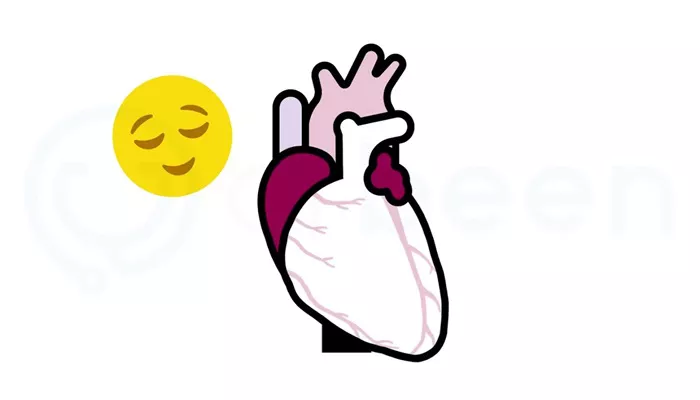Supraventricular tachycardia (SVT) is a condition characterized by an abnormally fast heart rate originating from the upper chambers of the heart. This rapid heartbeat can lead to various symptoms, including palpitations, dizziness, and fatigue.
While many individuals with SVT may not experience severe complications, the impact of this condition on daily life can be significant, particularly regarding energy levels and overall well-being. This article explores the relationship between SVT and fatigue, examining how episodes of rapid heartbeats can contribute to feelings of tiredness and exhaustion.
Understanding Supraventricular Tachycardia
What is SVT?
Supraventricular tachycardia refers to a group of heart rhythm disorders that result in a rapid heartbeat, typically exceeding 100 beats per minute at rest. The most common forms of SVT include atrioventricular nodal reentrant tachycardia (AVRT) and atrial fibrillation. These conditions can occur in otherwise healthy individuals and often manifest suddenly, leading to episodes that may last from seconds to several hours.
Symptoms of SVT
The symptoms associated with SVT can vary widely among individuals. Common symptoms include:
Rapid Heartbeat: A hallmark of SVT, where the heart rate may exceed 150 beats per minute.
Palpitations: A sensation of fluttering or pounding in the chest.
Dizziness or Lightheadedness: Often due to reduced blood flow during episodes.
Shortness of Breath: Difficulty breathing may occur, especially during exertion.
Chest Pain: Discomfort or tightness in the chest.
Fatigue: A profound sense of tiredness that may persist after an episode.
The Link Between SVT And Fatigue
Mechanisms of Fatigue During SVT Episodes
Fatigue is a common complaint among individuals experiencing SVT.
The mechanisms behind this fatigue can be multifaceted:
Reduced Cardiac Output: During an episode of SVT, the heart beats so rapidly that it does not have sufficient time to fill with blood between beats. This can lead to decreased cardiac output and insufficient oxygen delivery to tissues, resulting in fatigue.
Physiological Stress Response: The body’s response to a rapid heartbeat includes the release of stress hormones like adrenaline. This physiological stress can lead to feelings of exhaustion once the episode resolves.
Duration and Frequency of Episodes: The length and frequency of SVT episodes play a crucial role in determining the level of fatigue experienced. Short episodes may cause mild tiredness, while prolonged episodes can lead to significant fatigue lasting several days.
Post-Episode Fatigue
Many patients report feeling “wrung out” or extremely fatigued after an episode of SVT. This post-episode fatigue is often described as overwhelming and can significantly impact daily activities. Studies indicate that longer episodes correlate with more severe fatigue, with some individuals needing days to recover fully.
Patients frequently express anxiety about future episodes, which may exacerbate feelings of fatigue due to the anticipation and stress associated with potential recurrences.
Managing Fatigue Associated with SVT
Lifestyle Modifications
To mitigate fatigue associated with SVT, individuals can adopt several lifestyle changes:
Caffeine and Alcohol Reduction: Both substances can trigger or exacerbate episodes of SVT. Reducing intake may help decrease the frequency of episodes and subsequent fatigue.
Regular Exercise: Engaging in moderate physical activity can improve cardiovascular health and overall energy levels, although it’s essential to consult a healthcare provider before starting any new exercise regimen.
Stress Management Techniques: Practices such as yoga, meditation, and deep-breathing exercises can help reduce stress levels, potentially decreasing the frequency of SVT episodes.
Medical Interventions
For those experiencing frequent or debilitating episodes of SVT leading to significant fatigue, medical intervention may be necessary:
Medications: Beta-blockers or antiarrhythmic drugs can help control heart rate and reduce the occurrence of SVT episodes.
Catheter Ablation: This procedure targets the abnormal electrical pathways causing SVT and can provide a long-term solution for many patients.
Monitoring Symptoms
Keeping a symptom diary can be beneficial for patients with SVT. Tracking episodes, their duration, triggers, and associated fatigue levels allows healthcare providers to tailor treatment plans more effectively.
Conclusion
Supraventricular tachycardia is more than just a rapid heartbeat; it significantly impacts individuals’ quality of life through symptoms such as fatigue. Understanding the mechanisms linking SVT to tiredness is crucial for patients seeking relief from this condition. By implementing lifestyle changes and seeking appropriate medical interventions, individuals with SVT can manage their symptoms more effectively and improve their overall well-being.
Related topics:


